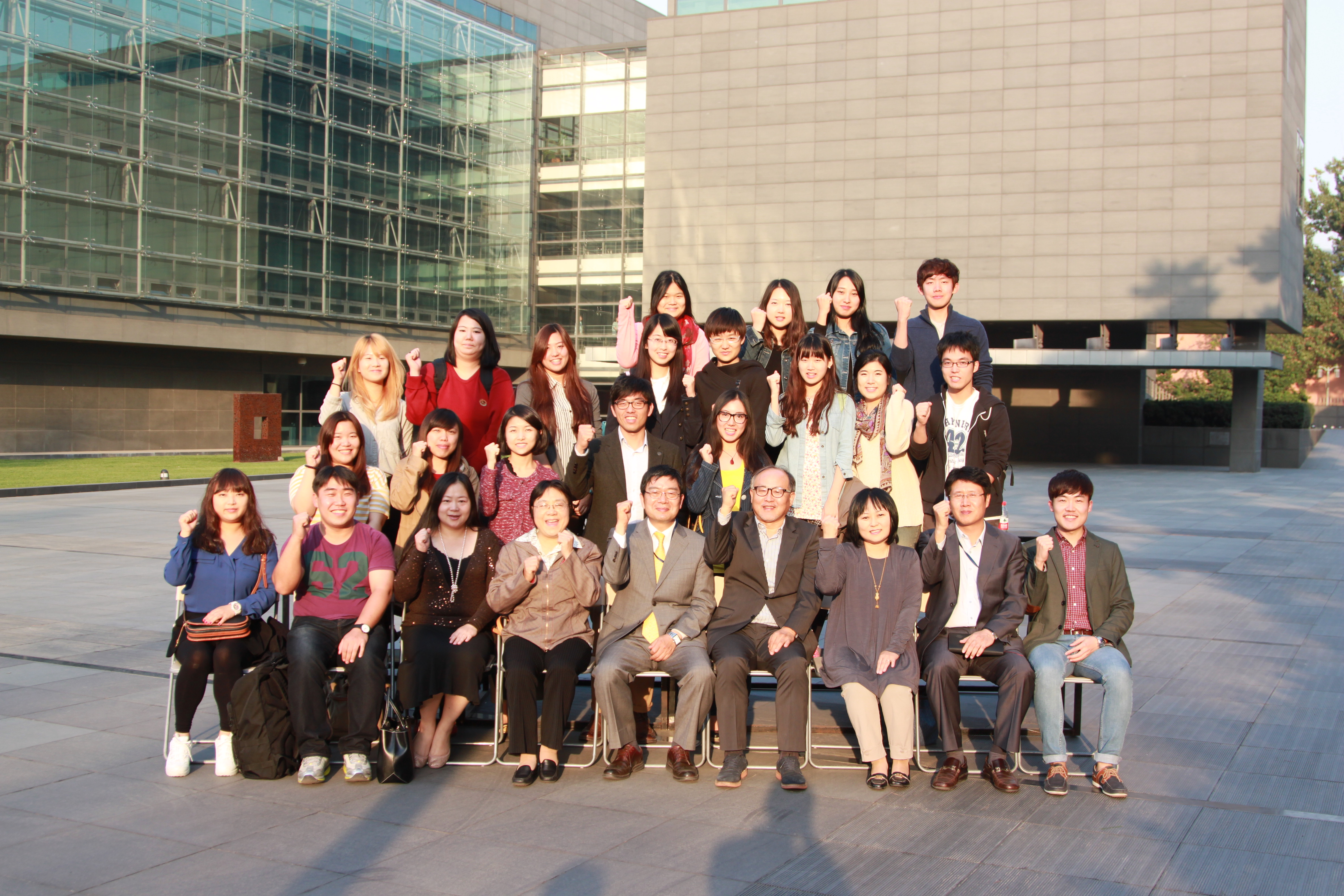A cultural communication course offered by the School of Journalism and Communication at Tsinghua University is bringing a class of multicultural college students closer. College students from Tsinghua and Seoul National University examined, evaluated and explored the contrasts between their respective cultures. Chinese students talked to their Korean counterparts for two hours at a time every week via face-to-face online conferencing.
Professor Zhenzhi Guo and Assistant Professor Shule Cao are teaching “Sino-Korea Dialogue” for the second round this fall semester. Roughly one third of the Tsinghua students who registered the course are from the School of Journalism and Communication. The rest of the students have backgrounds in astro engineering, environment engineering, computing, mathematics, Chinese language, fine arts, and social sciences. Cao said that despite diversity in academic disciplines and cultural backgrounds, students have a common interest in “other” cultures.
Professor Myungkoo Kang, a class overseer at Seoul National University said the course objectives are twofold. “Universities from the East Asian region exchange frequently, but conversations between students are very limited, I hope to normalize exchanges between students, which is the primary goal of designing this course. The second (goal) is to encourage students to become critical of ‘the centralizing self,’ through understandings about ‘the Other Culture’ and to become introspective about self cultures.”
14 students from Tsinghua and 10 students from Seoul National are researching on four areas including materialism, individualism and collectivism, gender issues and traditional culture. Students ventured to design, study and research about their own topics of interest. Some chose to study Chinese and Korean architecture designs and the physical preservation of traditional cultures. Some are interested in revealing which culture is closer to individualism, Chinese or Korean. The others are exploring the homosexual issue in two cultures.
“Students have preconceived notions about cultures, Chinese and Korea students alike, ” said Cao, “Our roles are to encourage and to facilitate classroom discussions and their expressions of opinions.”
Guest talks and survey trips were other major parts of the course experience. Business executives from Korean companies such as Missah and Toyo Ink Korea were invited to give a talk in Tsinghua and interact online with Korean students, while the journalist from people.com.cn were invited to SNU to share her observations of the culture differences. Seoul National University also organized its students for weeklong trip to Beijing, where students visited several Chinese media, and immersed themselves in Chinese cultures. Most of the SNU students expressed their surprise to see such a developed city and colorful culture and enjoyed the hospitality of Tsinghua students.
“Effective cross-cultural communications or studies should be between people and people, face to face, and not through media,” said Songli Guo who is a student enrolled in the course, “Even if we don’t do foreign communications, we can widen our hearts when relating to people around us.”


